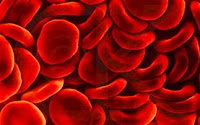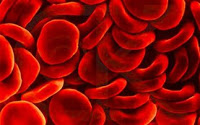The term thalassemia, or Mediterranean anemia, refers to a group of genetic blood disorders that affect the production of hemoglobin in the body, the protein that carries oxygen from the lungs to the tissues and various organs of the body.
It is one of the most common monogenic disorders in the world, affecting 15 million people worldwide.
Thalassemia is more common in people in the Mediterranean countries - Italy, Greece, the Middle East - but also in South Asia and Africa. Due to the constant migration of populations from one country to another, today there is virtually no country in the world without thalassemia.
Some people carry the thalassemia gene, but they do not have a major health problem associated with the disorder other than mild anemia.
These people have the so-called stigma of Mediterranean anemia (minor b thalassemia).
The thalassaemias
Thalassemia is an inherited trait of blood. It reduces the amount of hemoglobin that your body can take in that leads to anemia.
How is thalassemia transmitted from parents to children?
Every feature of your body is coordinated (controlled) by "genes" that contain a detailed code that controls your fetal development. It also controls all your bodily functions.
The genes are found in each of the cells in your body. One gene for each of your traits comes from the mother, the other from the father. So, among other things, you have 2 genes that control the way hemoglobin is "made" in each of your red blood cells.
"Normal" people are like that because they have two normal genes for their hemoglobin.
Healthy carriers of thalassemia stigma-β, have only one normal gene for hemoglobin, they also have one differentiated: they are healthy because the gene works normally. Since a gene is inherited from each parent, at least one of the two parents must, in this case, be a carrier.
People with thalassemia major-β have two different genes for hemoglobin, one from each parent, so both parents must be carriers here.
Source: medlabnews.gr

